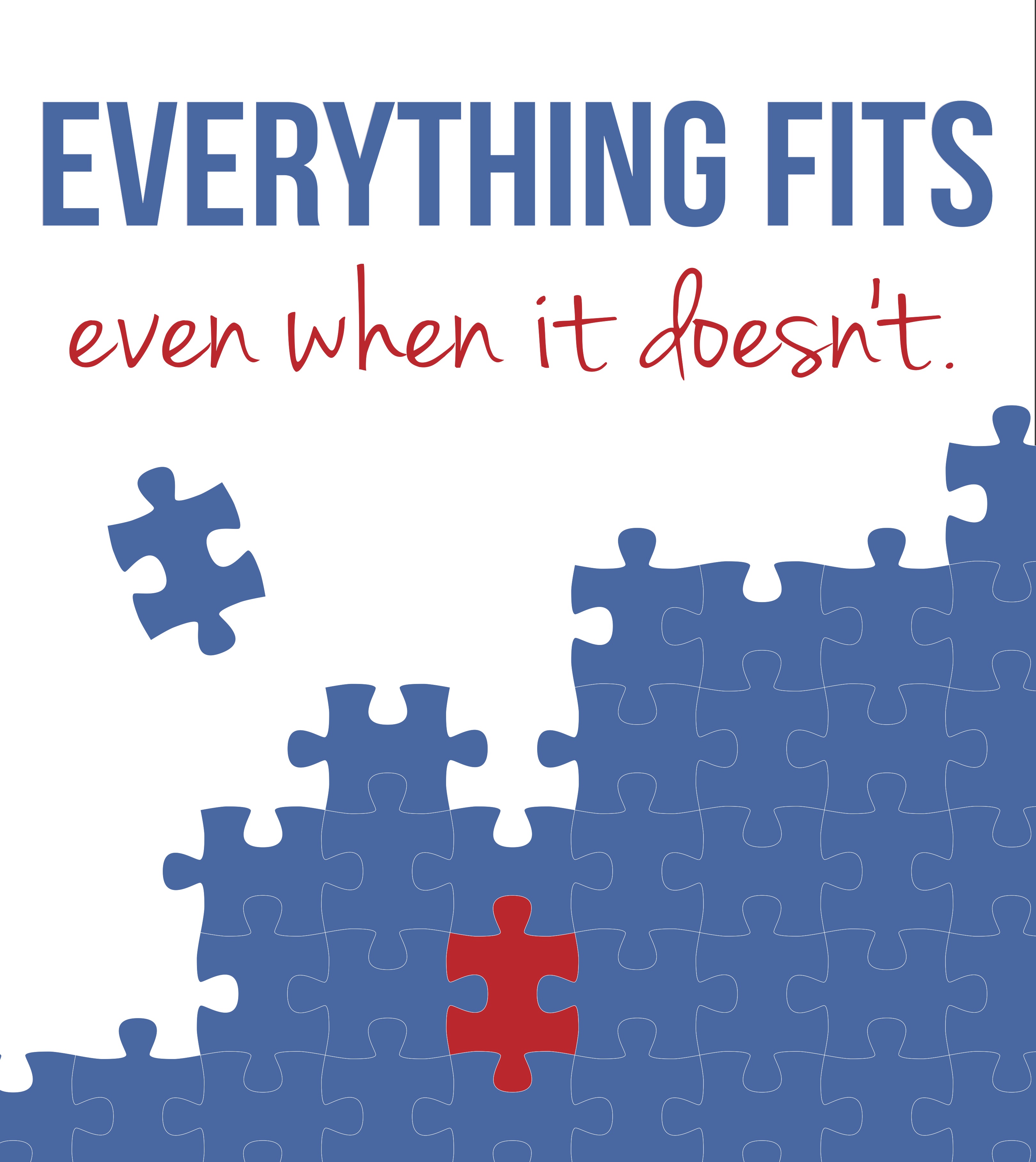When I was a teenager and first realized my family wasn’t all that happy, I began paying attention to what people did and didn’t do in their relationships with each other. Over time I began to see the same attitudes, words, and scenes associated with family disharmony.
Family can sure seem complicated, but I’ve noticed that behind most of the complications are one or more of these seven common ‘tools’ that we’re all familiar with.
These would be the opposite of The Lost Tools of Family Peace.
These are not lost at all, but are found (meaning, used) in most families. And they prevent peace, are deadly to peace.
I bet these will surprise you
They don’t seem all that bad. They’re common, everyday occurrences. But their negative influence is highly underestimated.
If someone wanted a stressed-out family, characterized by offenses, by lack of trust, defensiveness, emotional responses and arguments, they could get it to the degree these tools are mastered in their family. Back in the old days, growing up, this was how my family lived. We didn’t know any other way. This was normal.
They’re simple to use, come naturally to everyone, and seem logical to solve a problem almost everyone has.
The problem they try to solve: We all want to feel good about ourselves, and we all want to look good to others.
While that seems pretty harmless, it’s a deeply ingrained drive touching all our relationships. We’re all born looking for fulfillment, wanting to feel loved and worthy. Enter, these tools.
Trouble is, most of them don’t work long-term; you need to keep using them.
They’re deceptive because we never blame the tools for not working – we tell ourselves we just haven’t used them enough, or that the other person is an exceptionally tough case. So we double down and utilize the same tool over and over indefinitely, or switch to others and find the right combination for the results we want. Most of us do this intuitively.
They work well, but not well enough that you can ever stop using them
Like the sacrifices in the Old Testament, these are temporary fixes that never solve the real problem. I go to these tools whenever I fail to get my security, worth, and value from the sufficiency of Jesus. The pressures that cause me to resort to these are intended to pressure me into trusting Christ’s sufficiency. The more I trust, the less I will use these tools.
God allows the circumstances that should pressure me to trust him, but the same circumstances can tempt me to instead rely on my own ability to use these ‘Plan B’ tools. In Bible talk, it’s the battle between the Spirit and the flesh, every day, right here in our everyday family relationships. These tools are the flesh.
If you master several tools habitually and continually, it can seem like your feel-good and look-good desires are almost met. But it takes a lot of work.
There’s only one cure for the need to feel affirmed and the need to look good to others
And these tools are not the cure, they only fight off the symptoms.
No one taught me how to use them. I learned in an environment where they were practiced and I ‘caught’ them, like a cold or the flu. In fact, you could say they’re contagious. That’s how we all learn them.
While easy to use, mastering them takes lots of practice and use. As you look through the list below, you’ll probably realize you’re acquainted with someone who masters one or more of these tools. Maybe even you!
Don’t feel too bad, we all do it. I’m adept at #1 and #7. But hopefully more and more we’re abandoning these, and discovering the Lost Tools of Family Peace. We’ll never escape these, but we can keep them from being our normal way of life.
Here they are – the Most-Used Tools of Family Disharmony:
1
Using Your Family For the Inner Peace and Affirmation Only Jesus Can Provide
Inner peace always trumps external peace, but inner peace involves truly believing the sufficiency of Jesus is real. This is too ‘religious’ for some people. It really IS hard to believe his flesh is real food and his blood is real drink.
It seems easier to try to get the affirmation and approval I need externally from those around me. So I very subtly manipulate people and their responses to get approval and affirmation, and for things to look the way I want.
It’s the voice I don’t hear, but feel, on the inside, saying things like, I’ve got to take care of myself. I’ve got to be ‘right.’ It’s up to me to prove I’m worth it. If my family, or anyone in it, looks bad, it means I look bad. There’s not enough love to go around, I’ve got to get my share. If I don’t get affirmation here, where will I get it?
It’s so subtle and feels so normal, I never realize I’m doing it. But, it’s deadly to my influence in my family. I can’t meet their needs and mine at the same time. I have to pick.
This is the foundational tool for all the other tools. People who have inner peace, trusting the sufficiency of Jesus, don’t need any of the other tools. They can be wronged, offended, not get their way, and be on the short end of the score, without it causing any insecurity. For that reason, when this tool is abandoned, all the others also begin to fall.
Using your family for what only Jesus can provide makes it all about you. When you use family for something they can’t possibly give, they’re destined to fail you every time.
The more you trust in the personal sufficiency of Jesus, the better you feel about yourself, and the less you need to look good to others.
2
PBA
“Performance Based Acceptance”
If they don’t jump through the hoop of pleasing me, they don’t get the cookie of my love, acceptance, or approval. It’s an awesome way to get people to do what I want, since everyone wants love, acceptance, and approval.
Deep in my soul, I think, I only get what I deserve, so that’s all you get, too.
Again, it feels so normal I hardly realize I’m doing it. Others do the same with me, and it even feels normal when they do it to me and make me the one that needs to perform for them.
It’s the way the world works, but the opposite of Jesus’ way, and the opposite of grace.
Performance based acceptance is all about you. You set the standard they must meet to gain your acceptance.
The more you trust in the personal sufficiency of Jesus, the less you need to accept others based on their performance, because you’ve learned the power of unconditional love is far stronger than manipulated love.
3
Keeping Score
Another way the world works, I use this one to make sure I feel like I always win.
I only keep track of what I win. Anything anyone else wins doesn’t count.
I hear myself, and them, arguing over who’s right, or who’s remembering correctly. We each find ourself thinking or saying,
- I can’t believe you did that! / said that! / think that!
- You never ____!
- You always ____!
- Sure I may ___ but at least I don’t _____!
This tool is perfect for disrupting family peace since everyone else uses it too, and they also only keep track of what they win, so we both think we’re right and we argue. Let this go on for years and it ends up weighing enough for people to hate each other.
Keeping score is all about you and winning.
The more you trust in the personal sufficiency of Jesus, the less you need to keep score to feel better about yourself or to look good, because it doesn’t matter if you’re wrong or if you lose.
4
Rejecting and Marginalizing
Usually related to PBA, I use this to make myself feel better and them worse, although to me I’m just being fair and giving what’s deserved.
This is what I do when I keep score and can’t win.
Rejecting doesn’t have to be overt; it can be subtly withholding my heart from the other person. I cease to care, and I don’t mind if they sense it. I give the cold shoulder. I’m polite but never use more words than necessary. I never ask a sincere question.
Rejecting and marginalizing keeps me from facing it when the other tools don’t work as well as I’d like. It’s perfect for intimidating others, teaching them not to challenge me, and for avoiding facing unpleasant things about myself.
Rejecting and marginalizing is all about you. You set the standard, make the judgment, and carry out the sentence.
The more you trust in the personal sufficiency of Jesus, the less you need to reject and marginalize others to look good and feel better about yourself, because you already look and feel as good as you can.
5
Scolding, Criticizing, Finding Fault
Yes, these have their place, but it’s WAY less than you think.
It’s easy to notice when someone constantly corrects or criticizes someone. It’s difficult to notice when I’m the one doing it.
Using this tool with PBA and Keeping Score is highly effective for elevating myself over others. And I never believe I’m doing it to elevate myself – I’m convinced I’m simply acting in the other person’s best interest, and telling the truth, and making them a better person. This fallacy is revealed when others use this tool with me and I feel shame and inferiority, and react negatively towards them.
Scolding, criticizing, and finding fault is all about you. You know the right way, and it must be done your way.
The more you trust in the personal sufficiency of Jesus, the less you need to scold, criticize, and find fault with others, because you have no need to be right or to be elevated over anyone.
6
Being Offended
Use this and everyone will learn they need to back off or cater to me, or else things will get ‘complicated.’
Closely related to keeping score, this is where I’m ‘hurt.’ So hurt. It’s so unfair what someone thinks, said, did.
Being offended will keep me from hearing things I don’t want to hear. It makes people treat me better, at least on the surface, because nobody likes to hurt someone and make them feel bad. It works incredibly well.
Use this enough and I’ll also never get any real honesty from anyone.
Being offended is all about you, and how you feel.
The more you trust in the personal sufficiency of Jesus, the less you’re offended, because you have nothing to lose and so can’t get hurt.
7
Presuming You Understand
I use this and judge how a person or circumstance seems on the surface, in the first few moments, just from my own experience. I ignore that my experience might be incomplete, or that there could be many other dots to connect.
Then, I come to incomplete or incorrect conclusions about them. Then I treat them as if my conclusions are correct. And I never second guess myself.
“We imagine we understand where the other person is, until God give us a dose of the plague of our own hearts.” – Oswald Chambers
Presuming you understand is all about you. You know enough to judge, and you’re never wrong.
The more you trust in the personal sufficiency of Jesus, the less you need to understand everything because you have no need to be a judge who understands or knows best; we already have one of those,
~~~
Way better, and more fun to use? The Lost Tools of Family Peace.
What do you think? We’d love to join you on the journey of rediscovering The Lost Tools for your family.
JUST LEAVE YOUR EMAIL. It stays totally private, promise, and you’ll get the FREE Ten Minute Guide to a Fun Vision Day Your Family Will Love to Repeat Year After Year – it’s the same vision day our family has enjoyed for over ten years to help us connect with and root for each other.









